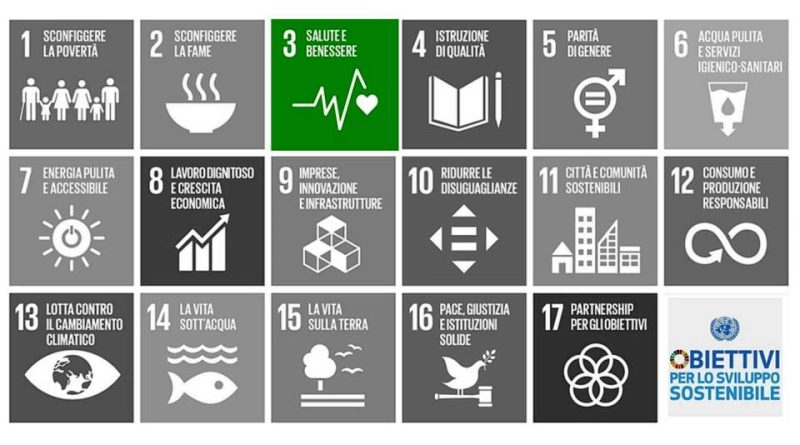2030 Agenda – Goal 3
2030 Agenda – Goal 3
Ensuring a healthy life and promoting the well-being of all at all ages
Goal 3 of the 2030 Agenda program is to promote the well-being and health of all people.
The MDGs have made a significant contribution to improving health globally by supporting the fight against diseases such as AIDS, tuberculosis and malaria. Since 2000, deaths from malaria have decreased by, for example, 60 percent. However, in many areas the results are still below expectations, such as in reducing the infant and maternal mortality rate.
Goal 3, in addition to furthering the efforts of the MDGs with regard to infant and maternal mortality and communicable diseases such as AIDS, malaria and tuberculosis, also includes instructions for combating non-communicable diseases, such as diabetes, as well as for the prevention of road accidents and drug abuse. Everyone should have access to good health services and medicines and be protected from financial risks. By 2030, access to treatment in the field of sexual diseases and reproductive medicine must also be guaranteed, including services such as family planning, information and education on these issues.
3.1: By 2030, reduce the global maternal mortality rate to less than 70 for every 100,000 live births.
3.2: By 2030, end preventable deaths of infants and children under 5 years of age. All countries should seek to reduce neonatal mortality to at least 12 for every 1,000 live births and the mortality of children under 5 to at least 25 per 1,000 live births.
3.3: By 2030, end the epidemics of AIDS, tuberculosis, malaria and neglected tropical diseases; combat hepatitis, water-borne diseases and other communicable diseases.
3.4: By 2030, reduce premature mortality from noncommunicable diseases by a third through prevention and treatment and promote mental health and well-being.
3.5: Strengthen the prevention and treatment of substance abuse, including drug abuse and harmful use of alcohol.
3.6: By 2020, halve the global number of deaths and injuries as a result of road accidents.
3.7: By 2030, ensure universal access to sexual and reproductive health care services, including family planning, information, education and integration of reproductive health into national strategies and programs.
3.8: Achieve universal health coverage, including protection from financial risks, access to essential quality health care services and safe, effective, quality and affordable access to basic medicines and vaccines for all.
3.9: By 2030, substantially reduce the number of deaths and diseases from dangerous chemicals and from contamination and pollution of air, water and soil.
3.a: Strengthen the implementation of the Regulatory Framework of the World Health Organization Convention on Tobacco Control in an appropriate manner in all countries.
3.b: Support research and development of vaccines and drugs for communicable and non-communicable diseases which mainly affect developing countries; provide access to essential and affordable medicines and vaccines, in accordance with the Doha Declaration on the TRIPS Agreement and Public Health, which affirms the right of developing countries to make full use of the provisions of the Agreement on Business Aspects of Rights of Intellectual Property containing the so-called “flexibility” to protect public health and, in particular, to provide access to medicines for all.
3.c: Considerably increase funding for health and for the selection, training, development and retention of health personnel in developing countries, especially the least developed and small island developing states.
3.d: Strengthen the ability of all countries, especially developing countries, to report in advance, reduce and manage health risks, both nationally and globally.
Obviously the state of well-being and health of the inhabitants of the earth is in relation to a new relationship between human ecology and natural ecology, so this great goal must be placed in relation to those for the protection of Nature.
Guido Bissanti

